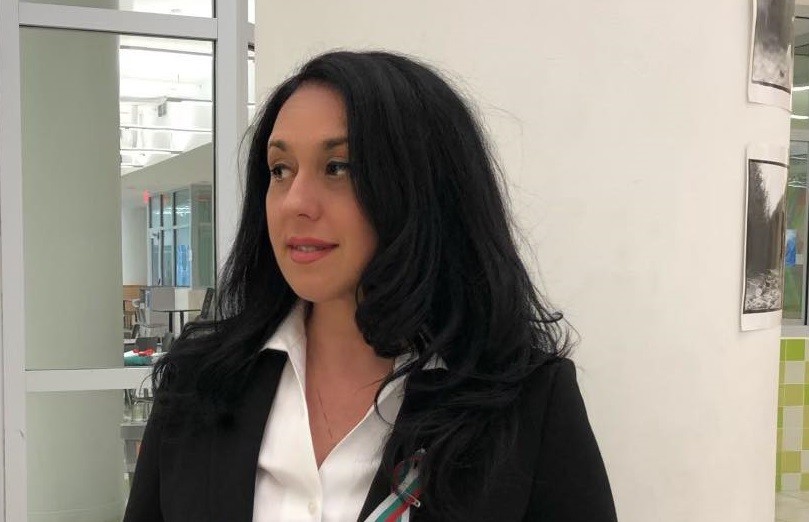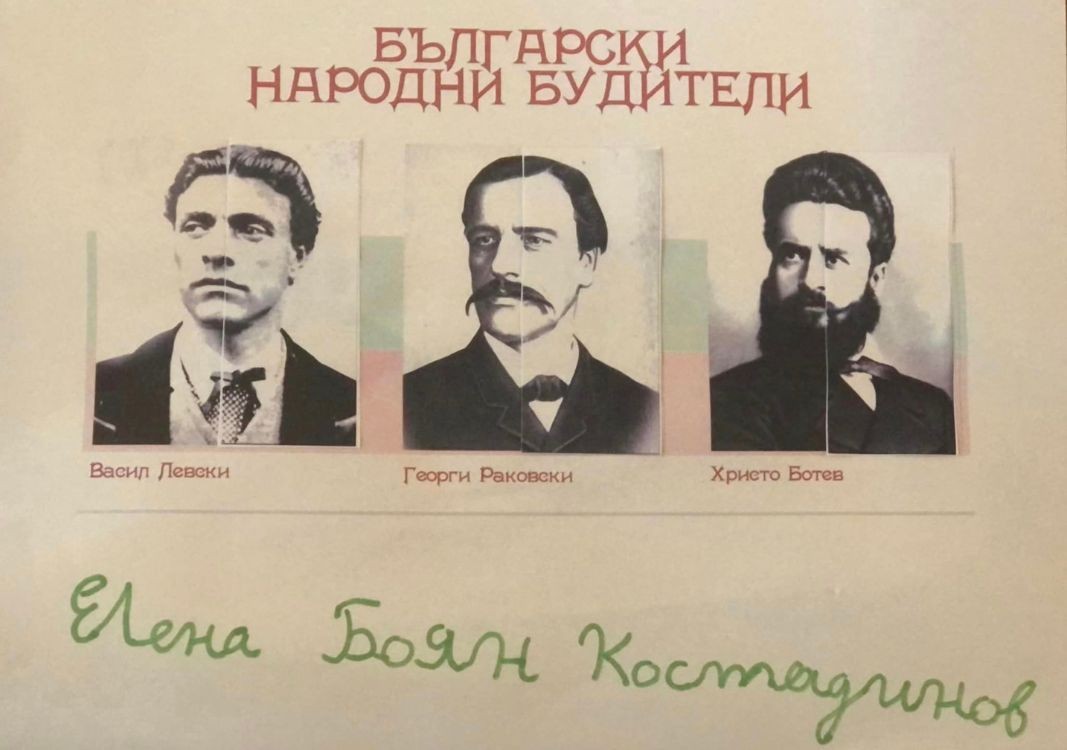This year marks 300 years since the birth of one of the first enlighteners – monk and man of letters Paisius of Hilendar, and 260 since he wrote one of the most significant works of the Bulgarian Middle Ages – Slavonic-Bulgarian history.
Though small, the book is very important for the awakening of the Bulgarian identity after centuries of foreign domination. “I wrote it for you,” Paisius writes, “who love your people and your Bulgarian homeland, and love to know your ancestry and your language. Copy this story, pay to have it copied by those who can write, so that it shall not disappear!”
Over two centuries later there are 70 copies of the History that have come down to us, and one of them is by the Bulgarian students from the Hristo Botev school in New York.

“In around three weeks, with the help of each of the families whose children attend the Bulgarian school, we copied the entire Slavonic-Bulgarian History,” says Dima Markova who teaches Bulgarian language and literature at the school in an interview with Radio Bulgaria. “Every child’s family copied the text by hand, some even added illustrations. Each chapter of the History now has a picture or an illustration by one of the children, and they are really beautiful.”
The school project connected with the Slavonic-Bulgarian History is divided into three parts, Dima Markova explains:
“The first part was for every single person from the school to copy it. The next part was putting the book itself together, and the third stage is a short presentation of the life of Paisius and of the first person to have copied the History - Sophronius of Vratsa.”
One of the students from America who copied Paisius’ History is Constantine Todorov who was born in Sofia. He left for the US six years ago with his parents, when he was 10. He speaks Bulgarian, but admits that going to the Sunday school has helped him not forget the language, and has acquainted him with the culture and traditions of Bulgaria:

“I copied the part of the History in which Paisius writes about how strong Bulgaria was, and no matter how many times the Byzantine army attacked us, in most cases we won. I think it is important that we, the next generation, know where we are coming from, that we know our history and that we are proud of it. And especially if we live outside Bulgaria.”
Constantine says that his friends at the American school are surprised he wants to go to school on a Sunday:
“They are really intrigued why I would want to spend my Sunday on something like this instead of just enjoying myself. But I am really happy I am part of the school because it makes me feel as if I am in Bulgaria. Together with friends we do folk dancing, but I don’t see it as some kind of obligation, I do it for pleasure.”
And though Constantine comes to Bulgaria during holidays he is not thinking of returning to Bulgaria. But Dima Markova says there are students at the Sunday school who have come back to Bulgaria. And she says she is grateful to Radio Bulgaria and the other BNR channels for their coverage of the life and problems of Bulgarians abroad:
“We have always relied on the BNR, which has so many listeners, so that our voice can reach them all.”
Photos: BGNES, personal library, Hristo Botev school in New York
20 nominees from 11 countries – that is the number of contenders for the “Bulgarian Woman of the Year 2024”, named in honour of Saint Zlata of Meglen . The award has been presented every year since 2009 by the Executive Agency for Bulgarians Abroad..
An initiative committee led by the historian Georgi Markov, has proposed that a monument to Khan Asparuh, the founder of the Bulgarian state, be erected on the site of the former Soviet Army Monument in Sofia, in order to serve as a unifying symbol for..
The Bulgarian dance group “Dilmana” based in Copenhagen will celebrate 15 years since its establishment with a celebration on October 18, the formation informed on its Facebook page. Dance group Dilmanа from Copenhagen to perform at the folklore..
When a contribution in the sphere of science is transformed into the basis for subsequent in-depth research the boundaries between countries and..
Sofia is hosting the finals of ER Champ 2025 — described by the organisers as the world’s largest international escape room competition . Taking place on..
More than 500 people from across Bulgaria are gathering today in the village of General Todorov, near Petrich, for the national festival “Once Upon a..

+359 2 9336 661
